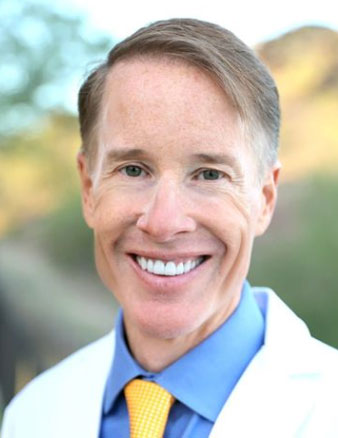It’s pretty common knowledge that hormones affect our bodies in many ways. It’s also common to hear about hormonal imbalances, but what does that mean? To answer this question, let’s take a closer look at what hormones are and what they do.
In the most simple terms, hormones are messengers. They travel through your body and affect all sorts of processes, such as:
- Growth
- Development
- Metabolism
- Puberty
- Fertility
- Energy Levels
- Hair Growth
- Mood
- Stress Levels
With such a wide range of effects, it’s easy to see why hormonal imbalances are such a big deal. Low energy, mood swings, and unwanted weight changes are only a few symptoms that a person might experience when hormones are out of balance.
And because everyone has hormones, anyone can experience imbalances regardless of age, gender, or background. The good news is that you can treat hormone imbalances with a few changes and the help of a doctor. The first step is figuring out what is causing the imbalance.
What Causes a Hormonal Imbalance
While there are many reasons that hormone levels get imbalanced, you can categorize the reasons into one of three areas: death, disease, and dysfunction. And don’t worry, it’s not as hopeless as it sounds!
First, we’ll talk about death. When we talk about death in terms of hormones, we refer to the changes that occur as your body ages. After a person passes reproductive age, they experience a drop in reproductive hormones, both testosterone, and estrogen. This change is a normal part of life for both genders, starting commonly experienced symptoms such as low libido, hot flashes, and weight changes.
The second cause of hormonal imbalances is disease. Hashimoto’s is an example of a condition that can affect hormones. With Hashimoto’s, the immune system attacks the thyroid, damaging it and leaving it with little or no function. A rarer example is Addison’s disease, a condition that lowers hormone output from the adrenal glands, which produce hormones such as cortisol, testosterone, and estrogen.
The last cause is dysfunction. Dysfunction happens when the body adjusts its hormone output in response to something else. While the causes can vary depending on the person, common reasons for dysfunction have to do with:
- Foods
- Stress
- Toxins
These and other stressors can interrupt necessary processes within the body and lead to hormonal issues.
Signs of Hormonal Imbalance
We’ve talked about a few symptoms of hormone imbalances, but those are just the tip of the iceberg. The symptoms vary widely depending on the reason, part of the body affected, and unique environment and history. Of course, other issues not related to hormones can also cause these symptoms, so it’s always a good idea to check with your doctor to get to the root of your problems.
Here’s a list of symptoms that you might experience with a hormonal imbalance:
- Unwanted changes in weight and metabolism
- Intestinal issues, such as bloating
- Food cravings
- Blood sugar issues
- Increased thirst
- Mood swings and irritability
- Depression
- Temperature sensitivity
- Excessive sweating
- Fatigue and low energy
- Sleep problems
- Dry skin
- Thinning hair
- Low libido
- Blurry vision
- Weak muscles
You may experience many of these symptoms or just a few. However, if some of them sound familiar or you suspect that your hormones are out of balance, it’s worth it to get your hormone levels checked out. Even if the cause turns out to be something else, you will be on the road to optimal health.
How to Treat a Hormonal Imbalance

When you approach your doctor about a possible hormone imbalance, one of the first steps is to run diagnostic tests. These tests usually consist of blood and salivary panels. Your doctor will direct you to the best tests to get the most accurate picture of your hormone levels.
Once your doctor has your test results, there are various options for getting your hormones back on track. By accounting for your health and the underlying causes of your hormone imbalances, your doctor can create a personalized treatment plan with the best options for your health.
Let’s jump back to the three reasons for hormonal balance that we discussed earlier for examples of the possible treatments. Hormonal imbalances caused by aging and disease involve processes that stop your body from producing hormones. Because of this, lifestyle changes can only take your healing so far. You must also address the underlying causes, so treatment often involves a combination of lifestyle changes, supplements, and hormone replacement therapies.
Bioidentical Hormone Replacement Therapy is one of these. This safe treatment uses advanced medical technology to replenish hormone levels and get your health back to where it should be. Testosterone, Estrogen, DHEA, and Progesterone are common hormones that this therapy addresses.
The third reason for imbalances is dysfunction. Since outside sources are often the cause of these issues, lifestyle changes can be a great option to restore your hormone levels naturally.
Natural Changes that Can Help Balance Hormones
Our bodies function at their best when they are balanced. Food, sleep, and activity play a big part in maintaining healthy processes in the body.
First, let’s look at food. Since this is our body’s fuel, it’s essential to eat foods that contain the nutrients our body needs. However, even people eating primarily foods considered healthy can experience imbalances in their bodies. You can use food to reset your adrenals and get your hormones back in balance when this occurs.
In The Adrenal Reset Diet, Dr. Christianson talks about this simple formula for getting the right balance of foods:
- Protein
- Veggies
- Carbs
- Healthy Fats
Get a good balance of these every day, and you’ll be on your way to feeling better. Part of this formula is cutting back on consuming processed foods. The chemicals used to extend their shelf life lead to foods with little nutritional value and ingredients that negatively affect your body.
Caffeine is another area that’s worth looking at when examining hormone imbalances. You’ve probably heard people talk about the health benefits of coffee or tea. The reality is that it’s not the caffeine that holds the health benefits. Instead, it’s healing antioxidants, called anthocyanins, which accompany caffeine.
While caffeine is not innately evil, our bodies can only process so much of it in a day. If you over-consume, you’ll end up with a backlog waiting to be processed, leaving you with caffeine in your bloodstream all day. Caffeine can keep your body from responding to your thyroid hormones and lead to a hormonal imbalance and other issues. The key is to use it strategically by drinking less and taking a day or two off every week to make sure it all makes it out of your system.
Plus, with caffeine running through you all the time, it’s no wonder you’re having trouble with your energy! Issues with falling and staying asleep are common with too much caffeine intake. And since sleep is one of the crucial elements of healthy body function, this is no small problem.
Did you know that when you get less than 7 hours of sleep per night, some parts of your brain actually sustain damage?
When we sleep, our body can repair and rejuvenate, but when it doesn’t get enough time, it can’t complete all the healing it needs to. That’s when you start to see and feel the damage. If you switch from sleeping too little to getting 7-8 hours of sleep per night, you will soon find that you have higher energy levels, are more productive, and even lose weight more easily.
The takeaway? Prioritize your sleep, and keep an eye on your caffeine intake. Your body will have a chance to catch up, and your hormones will thank you.
Last, maintain an active lifestyle. You don’t have to do a lot to affect your health positively. Intentional daily movement — light exercise, stretching, and walking — helps everything function better, and that includes your adrenal and thyroid glands. It also enables you to sleep better and lowers your stress levels, balancing cortisol and other hormones.
You may have noticed that these three factors — food, sleep, and activity — are all intertwined. It all comes back to balance. A daily rhythm that prioritizes going to bed and waking up on a schedule, eating balanced meals, and moving intentionally, paves the path to optimal health and hormonal balance.

Hormonal Imbalance Differences Between Women and Men
Hormone imbalances affect both women and men, but not necessarily the same ways. For example, although both genders have estrogen and testosterone, men have more testosterone, while women have more estrogen. An imbalance in either of these hormones would look different depending on whether they were male or female.
For women, hormones fluctuate throughout life due to menstruation, pregnancy, and menopause. When these fluctuations become excessive, you see the effects of hormone imbalance. In addition, as women age, their estrogen levels lower, bringing hot flashes, vaginal dryness, and other common symptoms of menopause.
For men, testosterone levels start to drop after age 30, often bringing lower libido, less energy, and changes in body composition. These symptoms, which we often refer to as signs of aging, are thanks to changes in hormone levels.
While changes in hormone levels are a natural part of life, stress brought on by careers, family, and other responsibilities also plays a role in maintaining balance. Stress increases cortisol levels, which lowers testosterone levels and affects other hormones. This is why everyone can benefit from taking the time to understand and improve their hormone function.
If you suspect you have a hormonal imbalance or want to learn more about this topic, schedule an appointment with your Integrative Health Doctor today. They are ready to help you find a personalized health plan to rejuvenate your body and hormone levels so you can live a full and healthy life.

P.S. Whenever you are ready, here is how I can help you now:
1. Schedule a complimentary consultation with one of my team of naturopathic doctors. This is a great starting point for assessing your unique health needs and treatment options.
2. Need A Thyroid Supplement Recommendation? Take My Thyroid Specific Formulations Quiz Now
3. Need a Personalized Supplement? Check out My Thyroid Specific Formulations
4. Download and use my Favorite Recipes Cookbook Here
5. Check out my podcast Medical Myths, Legends, and Fairytales Here
Dr. Alan Glen Christianson (Dr. C) is a Naturopathic Endocrinologist and the author of The NY Times bestselling Adrenal Reset Diet, The Metabolism Reset Diet and The Thyroid Reset Diet.
Dr. C’s gift for figuring out what really works has helped hundreds of thousands of people reverse thyroid disease, lose weight, diabetes, and regain energy. Learn more about the surprising story that started his quest.

